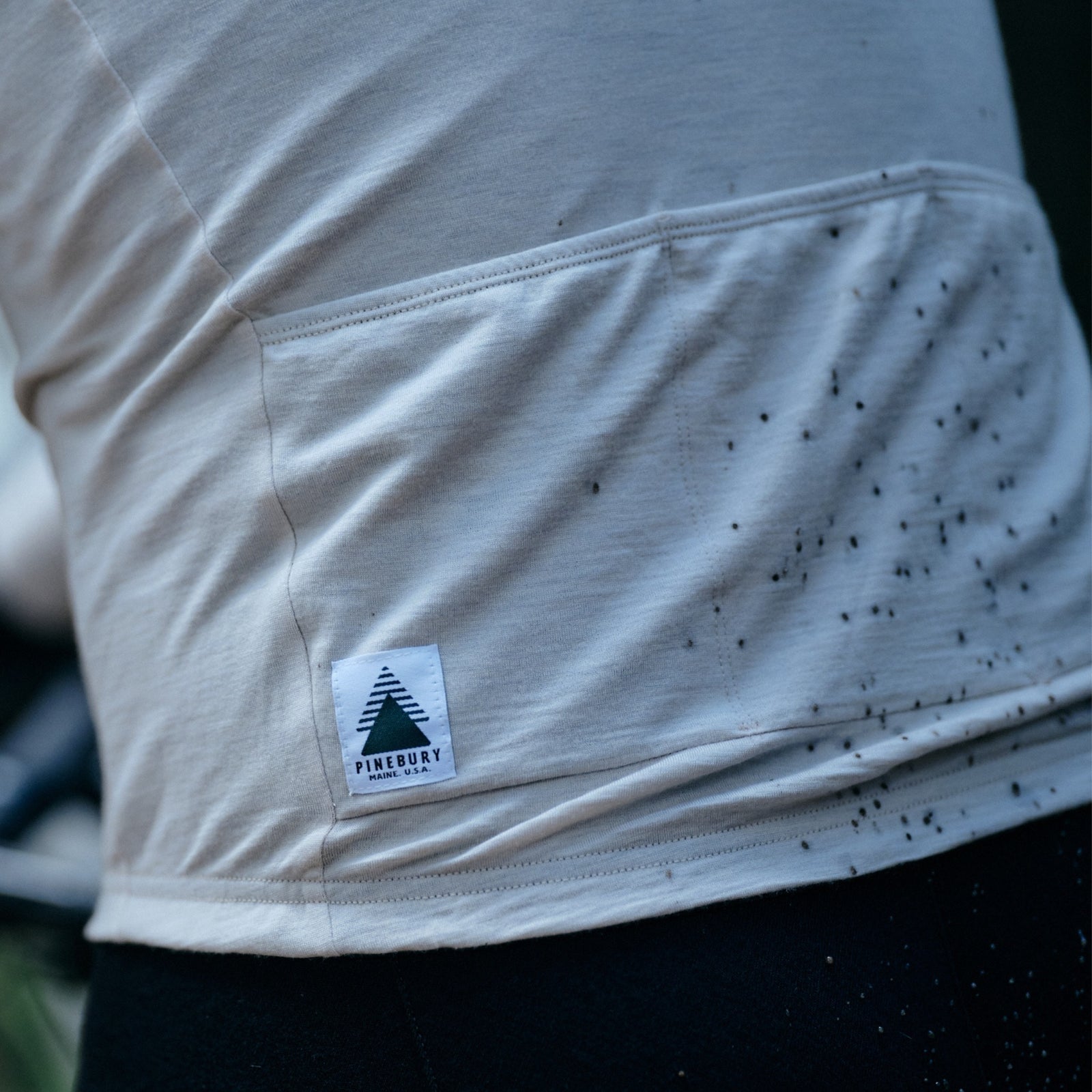Exploring merino wool
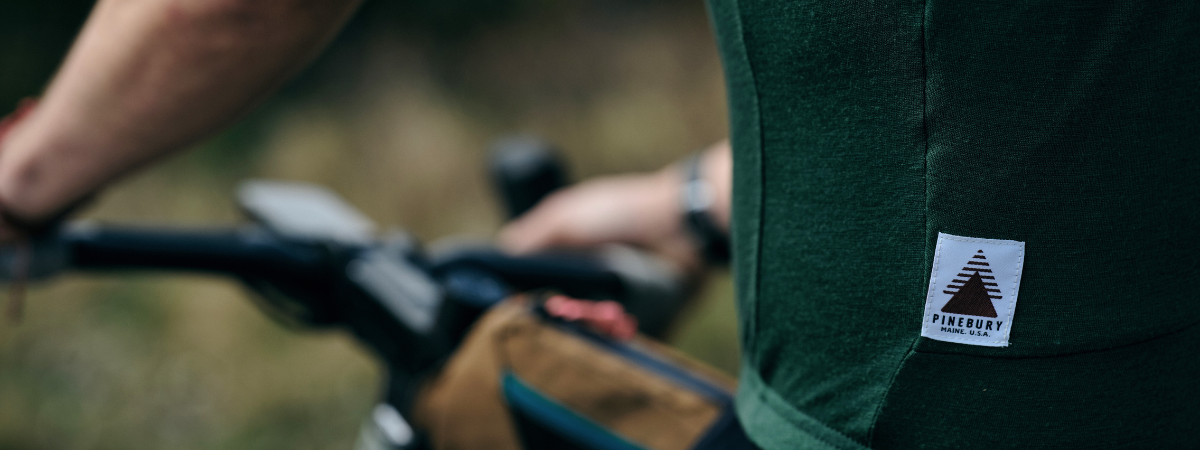
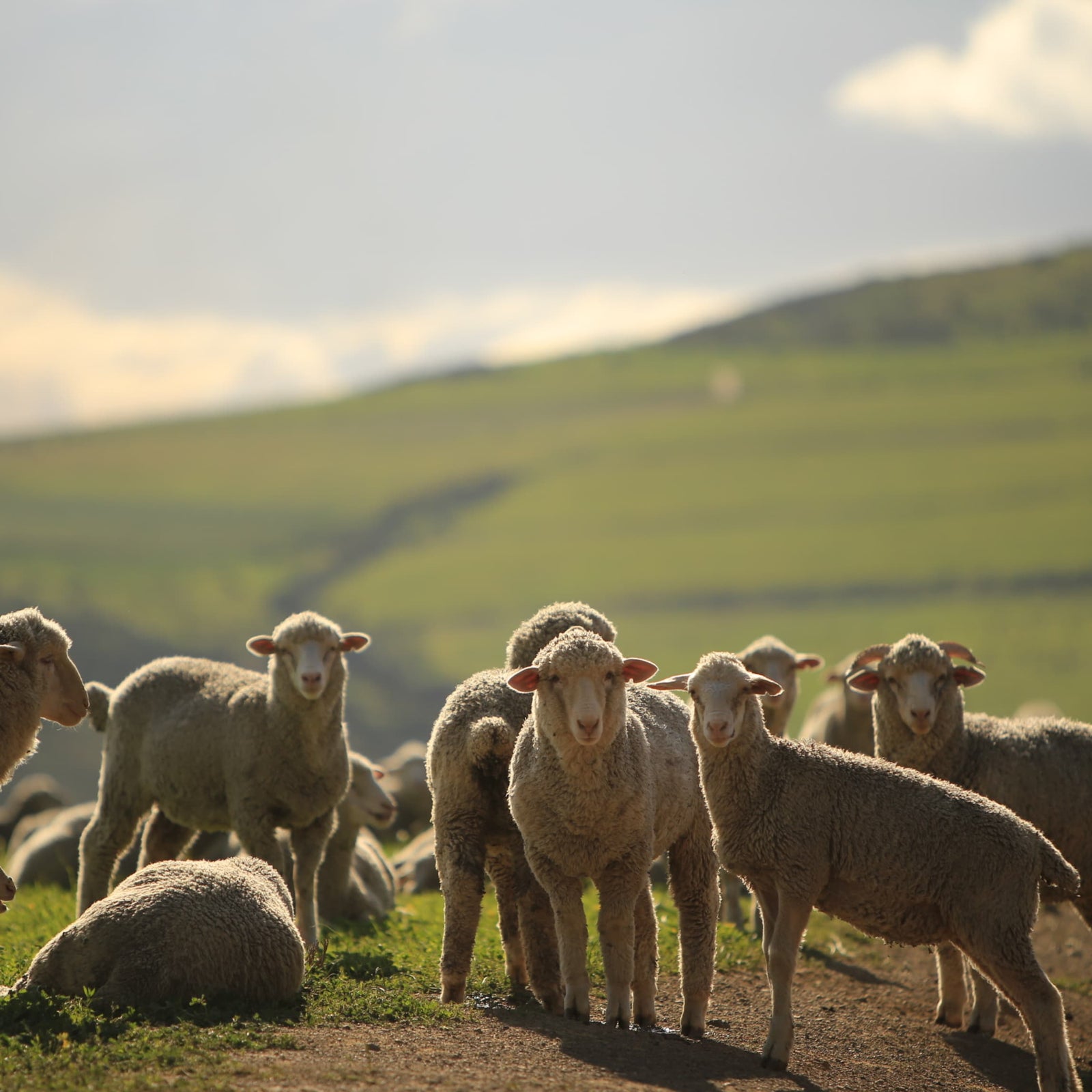
What Is Merino Wool?
Merino wool comes from the Merino sheep breed known for its fine, soft, and highly crimped wool fibers. It’s prized for its exceptional warmth, breathability, moisture-wicking properties, and ability to regulate body temperature.
Merino wool fibers are coated in lanolin, a waxy substance that effectively draws moisture away from your body and acts as a natural barrier against odor-causing bacteria. This unique feature ensures that our Merino remains breathable and dry, retaining a fresh scent and comfortable feel, allowing you to wash it less.
Our Merino wool is grown in New Zealand from open-range, certified non-mulesed sheep that are shorn once annually.
Understanding fabric weight
What does it mean when we see a fabric being measured by grams per square meter or "GSM"?
GSM is a standardized method to quantify the weight of fabric. Put simply the higher the GSM the heavier or thicker the fabric is. Merino Wool fabrics generally range from 100 gsm (ultra light) to 240 gsm (heavy).
Along with GSM, you may see our fabric specs listed with a micron size. This is a measurement of the diameter of the wool fibers at one thousandth of a millimeter. Merino wool fibers measure between 17.5 (Superfine) to roughly 25 (medium) microns. To put that in perspective, human hair is between 60-88 microns. The finer the fiber (lower number) the softer the fabric will be.
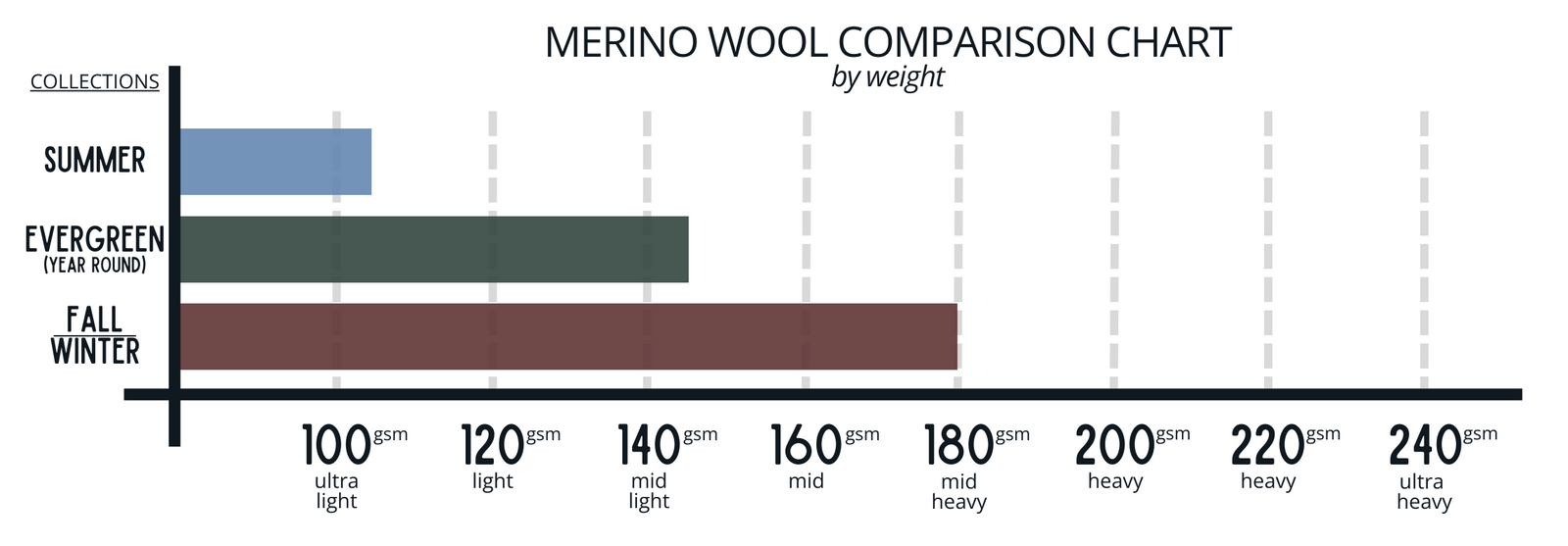
Engineering better wool
Nuyarn® is a spinning technology that releases the natural performance characteristics of wool fiber twisted out by traditional spinning methods.The result: Wool products made from natural fibers that outperform synthetics and conventional merino.
Twist-free spinning creates much more loft and aeration within the wool fibers. This results in natural thermoregulation, breathability, air resistance and the ability to absorb and quickly evaporate water vapor.
With Nuyarn® merino wool we're able to make garments that are lighter, warmer, faster drying, more wind-resistant and significantly more durable.
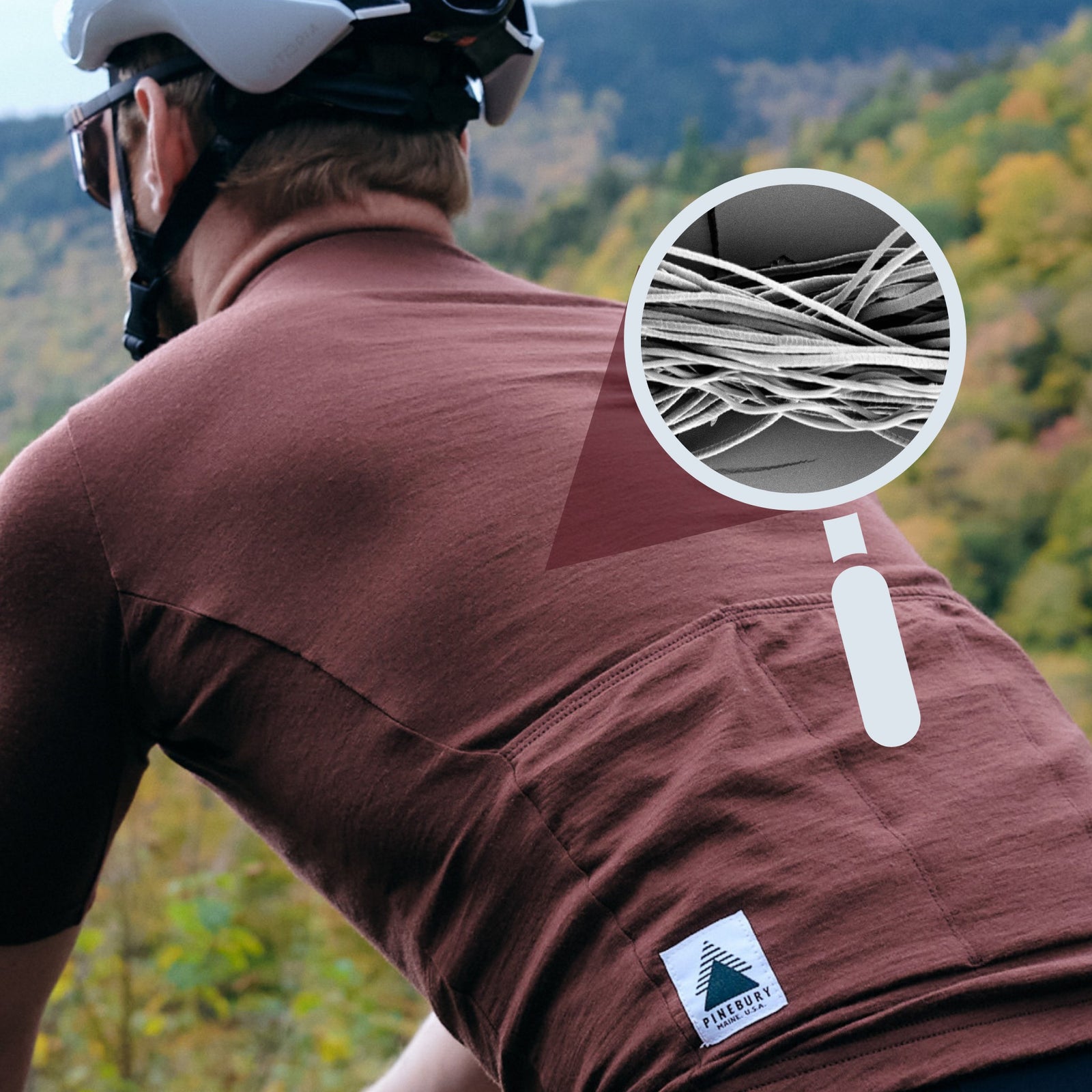


benefits beyond the cold
merino Wool when it's warm
Wearing Merino wool in warm weather offers surprising benefits. Despite its reputation for warmth, Merino wool's natural breathability and moisture-wicking properties make it an ideal choice for hot weather.
The fabric efficiently wicks away moisture from the body, allowing sweat to evaporate quickly, which helps to cool you down. Its unique structure also enables air circulation, preventing the fabric from sticking to the skin and promoting a cooling effect. Additionally, Merino wool has the remarkable ability to regulate body temperature, keeping you comfortable by adapting to your body's needs, making it a smart and comfortable choice for daily wear.
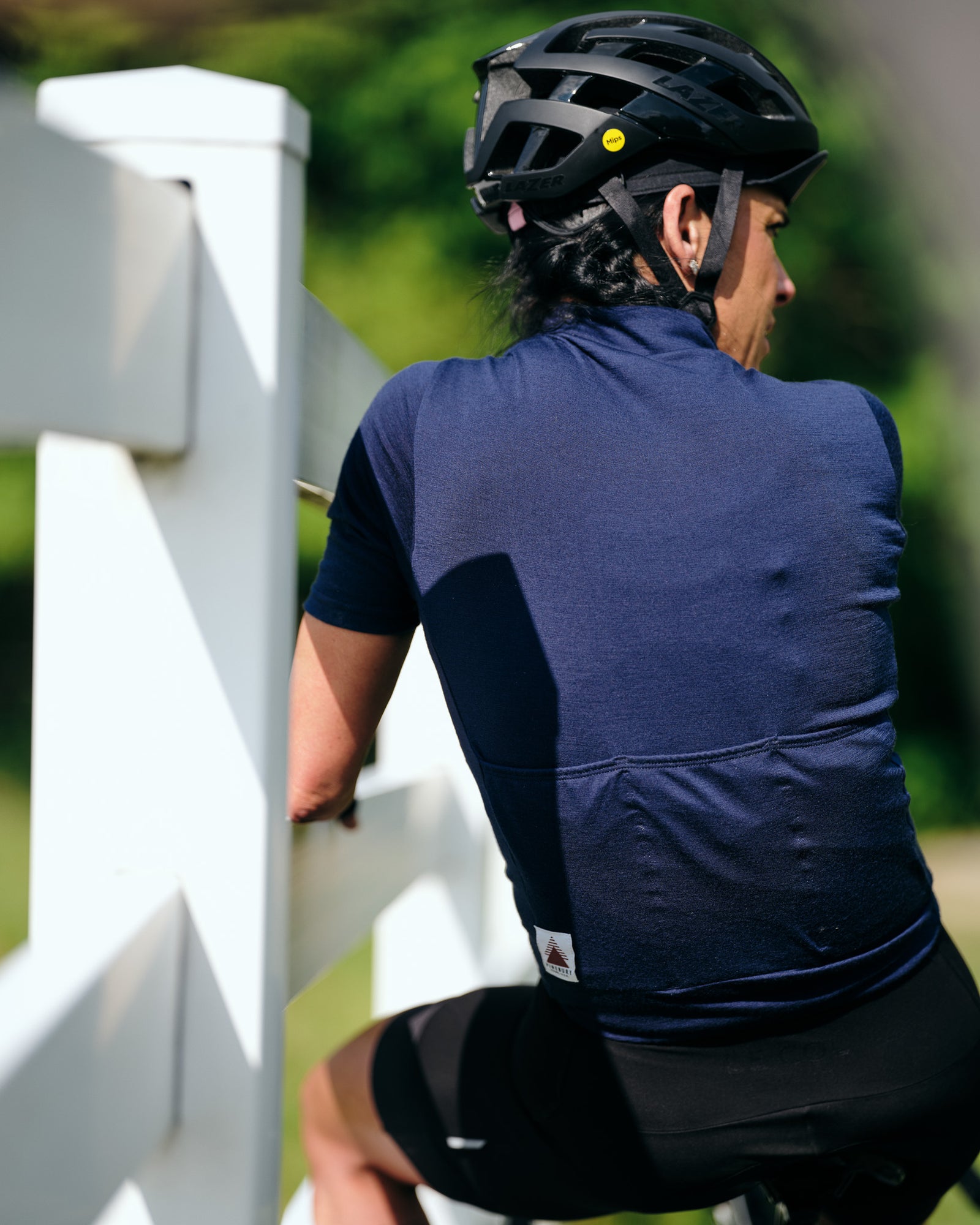
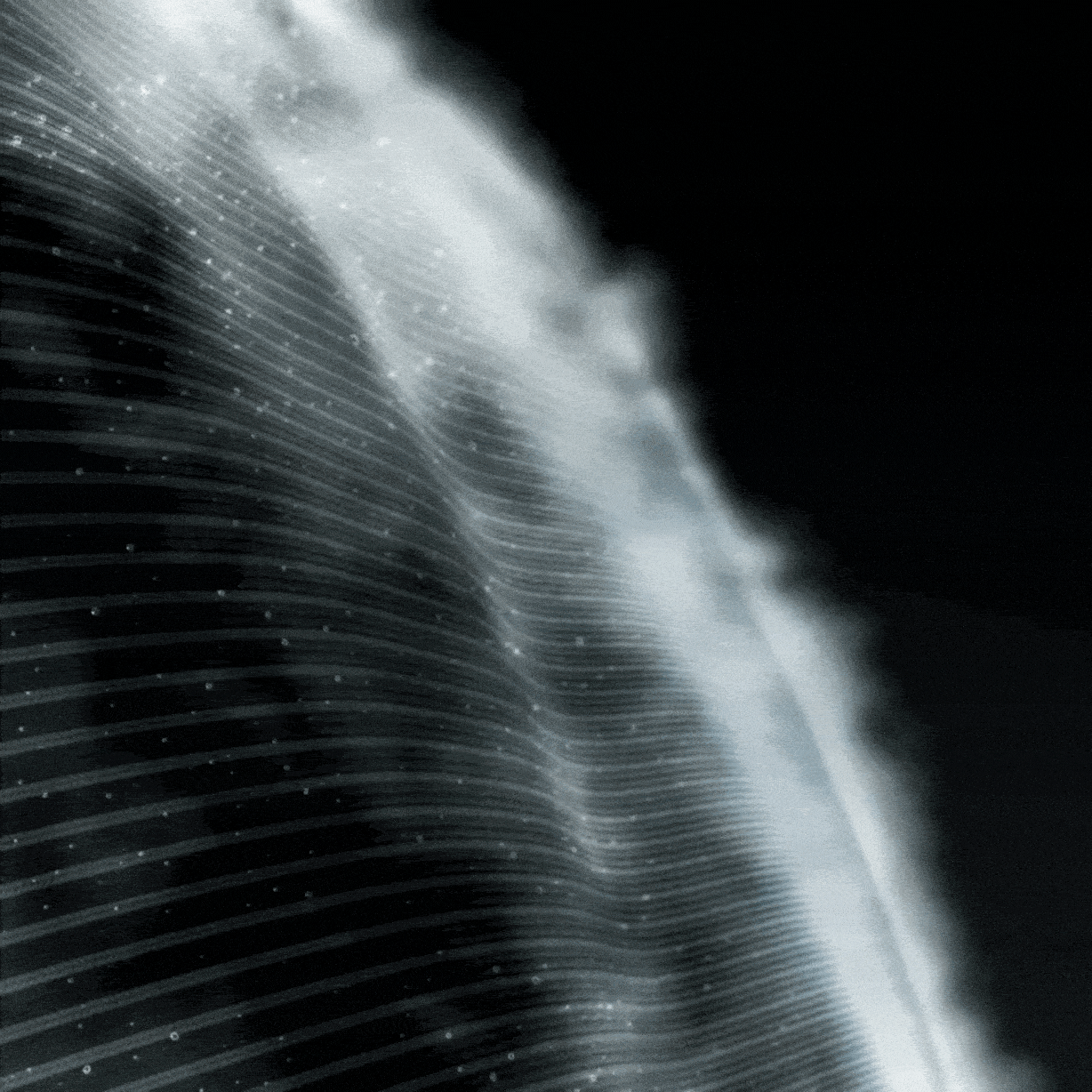
merino Wool when it's wet
Unlike traditional wool, Merino fibers have a unique structure that efficiently pulls moisture away from the body, keeping you dry even when it's wet. This inherent ability helps regulate body temperature, preventing discomfort caused by dampness.
Nuyarn® Merino has the ability to absorb moisture from vapor stage, one tier before synthetic materials. Vapor and perspiration are quickly wicked away from the surface of the skin and absorb into the fabric. The increased aeration in the structure of Nuyarn® Merino begins the drying process even before it arrives at the fabric surface. Merino wool with Nuyarn® dries 5x faster than conventional merino and synthetics.Merino Wool and Sustainability
Merino wool is considered environmentally friendly for a number of reasons:
First, it's a renewable resource as sheep regrow their wool annually and it's produced through methods that prioritize animal welfare and ethical farming practices.
Second, it's biodegradable, meaning it will naturally decompose when disposed of. Minimizing it's environmental footprint after disposal.
Lastly, Our garments made with Nuyarn® merino wool last 8.8x longer than conventional merino, reducing the environmental impact of apparel production.

Caring for merino wool
Our garments are designed for versatility and durability. As a result, it's inevitable that your gear with accumulate dirt and sweat and require occasional washing. It's crucial to wash your gear correctly to maintain it's optimal performance and prolong it's life.
Machine Washing:
Hand Washing:
Drying:
DO NOT TUMBLE DRY MERINO WOOL.
